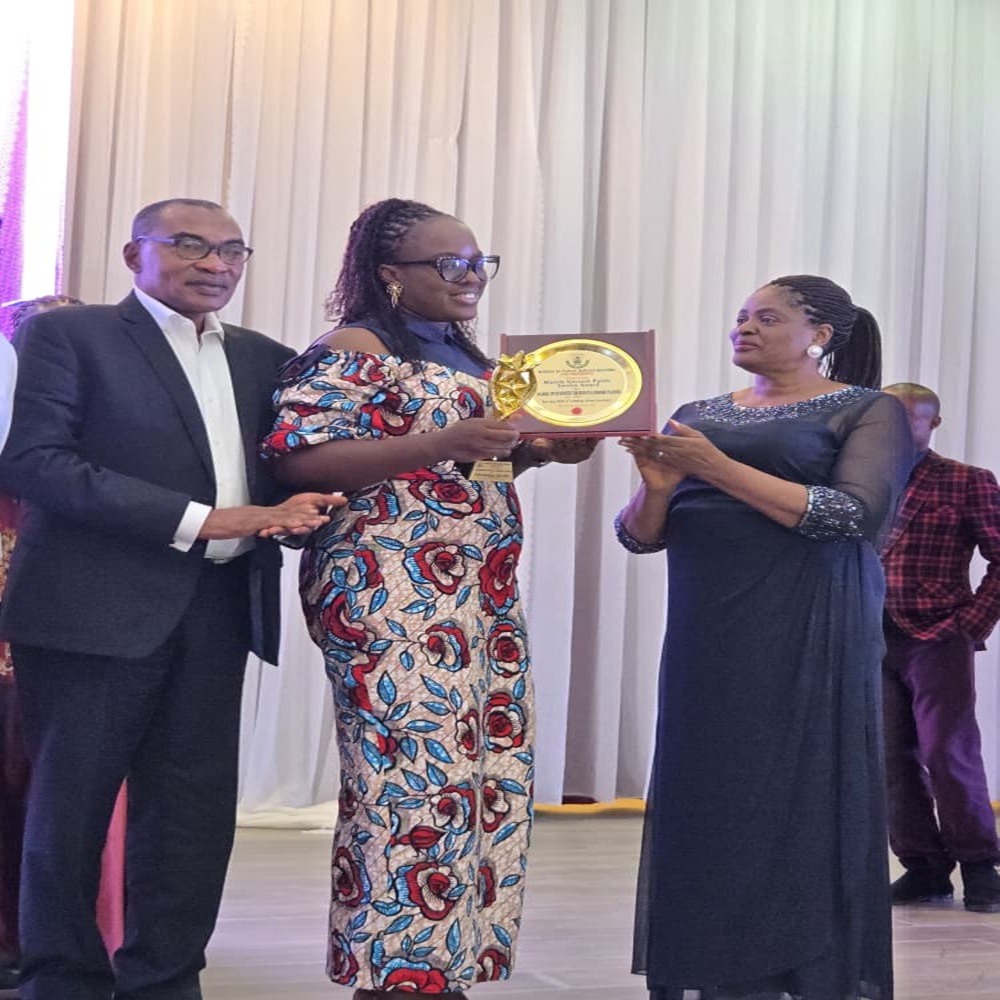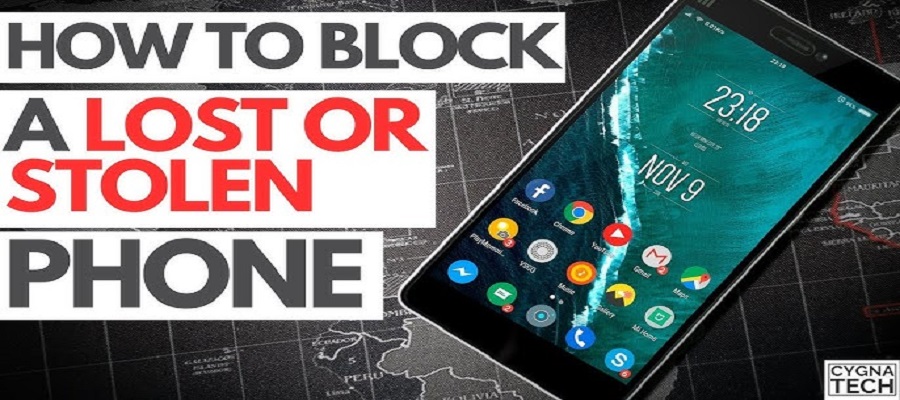Telecom
FG Directs NCC to Issue Research Grants on Artificial Intelligence

The Federal Ministry of Communications and Digital Economy, has directed the Nigerian Communications Commission (NCC), to provide grants for tertiary institutions to enhance research on robotics and emerging technologies.

Prof. Isah Pantami, the Minister of Communications and Digital Economy, disclosed this during the International Conference on Computing and Advances in Information Technology, organised by Ahmadu Bello University (ABU) Zaria on Tuesday.
The three-day conference which was organised by the Department of Computer Science of the institution has “Fostering Digital Economy Through Recent Trends in Information Technology’’ as its theme.
Pantami said the ministry was passionate about supporting emerging technologies in the area of 5G, artificial intelligence, robotics and many more.
To achieve this, the minister said he directed the NCC to come up with research grants that would be given to higher institutions to partake on research in emerging technology.
He said there was a meeting about three weeks ago to review proposals sent by academics in order to see how the Federal Government would support them with research grants in the area of emerging technologies.
According to Pantami, there is a research grant under the National Information Technology Development Agency, where the Federal Government sponsors young academics to higher institutions abroad.
He said all these initiatives were to support digital economy of the country.
The minister noted that according to the world economic forum, as at 2016, the global contributions of ICT to economic development stands at 16 per cent, and the figure has been predicted to reach 50 per cent by 2022.
He added that the world economic forum had also predicted that by 2022, 132 million jobs would be created within the digital economy sector.
Pantami further noted that the global economy had been digitalised; new opportunities were coming up, particularly with the emergence of the disruptive technology like artificial intelligence, robotics, 5G, quantum computing, virtual realities and many more.
“All these aspects of emerging technologies come up with new opportunities that make ICT to dominate the world economy; as it is today, ICT was a key enabler to the growth and development of the world economy,’’ the minister said.
He added that the trend was the same in Nigeria, as in 2020 the National Bureau of Statistics said the fastest growing sector of Nigerian economy was the ICT.
“In the first quarter of 2021, the fastest growing economy in the country was ICT, in the second quarter of 2021, the contribution of ICT to Nigeria’s Gross Domestic Product (GDP) was 17.92 per cent,’’ he said.
He, therefore, attributed the unprecedented ICT’s contribution to GDP on policies of the ministry, stressing that within two years the ministry with its agencies came up with 16 national policies.
He added that of the 16 developed national policies, more than a dozen were being implemented, like the `National Digital Economy Policy Strategy for a Digital Nigeria”, which he described as the umbrella policy upon which other policies were developed.
Pantami said the ministry was coming up with subsidiary legislations and regulatory instruments to support the development of ICT sector in the country.
In his remarks, Prof Kabiru Bala, Vice-Chancellor, Ahmadu Bello University Zaria, said the conference was in line with the university’s efforts aimed at reviving the long standing academic and stakeholders’ engagement.
Bala said that the academic and stakeholders’ engagement was aimed at boosting awareness creation, knowledge sharing and influencing national and international policy formulations.
The vice-chancellor said the international conference on computing and advances in information technology with a theme “fostering digital economy through recent trends in information technology’’ was relevant and timely.
“The digital economy is an economy which operates predominantly with the help of digital technology. It implies the global network of economic activities processes, transactions and interactions among people, businesses and devices among others supported by ICT
“The digital economy permeates the world economy; information was flowing within and across borders with unprecedented volumes, with significant impact on innovation, trades, global value chain and society; while few aspects of our life remained untouched by digitalisation,” Bala said.
He noted that “emerging technologies like artificial intelligence, robotics and cloud computing, among others led to breakthroughs that characterised our world today; this conference is therefore relevant and timely.”
Telecom
Anambra ICT Agency Celebrates GOVTECH Awards, Applauds Soludo’s Digital Vision

Chukwuemeka Fred Agbata, CFA, md/ceo of the Anambra State ICT Agency, has extolled Governor Charles Chukwuma Soludo, CFR, for his unwavering commitment to technology adoption in Anambra State, a vision that has positioned the state as a shining example of digital governance in Nigeria.

This recognition follows Anambra’s outstanding performance at the Nigeria GOVTECH Gala & Awards 2025, where the state clinched two prestigious honours at the Presidential Banquet Hall, Abuja.
The Anambra State Ministry of Budget and Economic Planning emerged as Best State MDA in Technology-Driven Governance, while the Anambra State Bureau of Public Procurement received the Excellence in Digital Public Procurement Award.
The Commissioner for Budget and Economic Planning, Chiamaka Nnake, and the DG of BPP, Okechukwu Ezeobi, also received Trailblazer Awards for exemplary leadership.
Speaking on the win, CFA commended his colleagues for working closely with the Agency to deepen technology adoption, and reaffirmed the ICT Agency’s commitment to powering the digital infrastructure that supports efficient and transparent government operations in line with Governor Soludo’s “Everything Technology, Technology Everywhere” mantra.
“These awards underscore what is possible when agencies work together with a shared vision,” CFA said. “The ICT Agency is proud to support and enable the digital systems that make such milestones possible.”
He further pledged that the Agency would sustain the momentum by expanding digital integration across government processes, ensuring that Anambra remains at the forefront of e-governance innovation in Nigeria and beyond.
Telecom
IHS Closes Deal to Sell Rwanda Operations

IHS Holding Limited (IHS Towers), an independent tower company, has completed the sale of 100% of Rwanda operations to Paradigm Tower Ventures.

First announced in May, the deal is worth $274.5 million, representing a transaction multiple of 8.3x adjusted EBITDA after leases, and includes about 1,465 sites.
According to IHS Towers, the sale of the company’s Rwanda operations is part of its strategic initiatives targeted at shareholder value-creation options following over ten years of commercial success in the East African country.
The acquisition IHS Rwanda will mark the first investment by Paradigm’s new Sub-Saharan African tower platform, whose focus is on the growth of new build shared wireless infrastructure across the region.
Paradigm is backed by a consortium of equity and debt finance providers, including Convergence Partners and Rand Merchant Bank, a division of FirstRand Bank Limited, who acted as mandated lead arranger, sole funder and financial advisor.
Stephen Harris, co-founder and chairman of Paradigm previously commented: “Rwanda represents an exciting market with high demand for shared wireless infrastructure. The Paradigm team is very much looking forward to building a strong customer focused business, providing high quality and secure infrastructure to mobile network operators.”
Telecom
NCC Launches DMS to Block Fake, Stolen Phones from Mobile Networks

Nigerian Communications Commission (NCC) has announced the implementation of a Device Management System (DMS) designed to block fake, cloned, and stolen phones from accessing Nigeria’s mobile networks.

The system, which has been in development for nearly a decade, will track mobile devices through their International Mobile Equipment Identity (IMEI) numbers across the country’s telecommunications networks.
The initiative follows Nigeria’s recent nationwide migration to the NINAuth digital ID verification platform, demonstrating the country’s commitment to modernizing its telecommunications infrastructure.
Operating through a Public-Private Partnership (PPP) framework, the DMS marks a significant step in regulating Nigeria’s telecommunications device market.
The initiative addresses the prevalent issue of counterfeit and unregistered phones in the country, where estimates indicate that up to 40 percent of mobile devices and tech gadgets are fake or substandard.
The challenge mirrors similar issues faced by other African nations, such as Uganda, which recently launched its own “Simu Klear” system to address counterfeit devices.
According to the NCC, the implementation will proceed gradually to minimize disruption to legitimate users. “Substandard and fake devices can be prevented from connecting to the networks due to the harmful impact these devices have on the quality of services and online safety of the users,” the Commission stated.
The IMEI-based tracking system builds on successful implementations in other regions, where similar technology has been used to recover lost and stolen devices.
The widespread presence of counterfeit devices in Nigeria has been attributed to various economic factors, including inflation, unemployment, and reduced purchasing power, which have led consumers to seek cheaper alternatives despite associated safety and security risks.
The risks include potential exposure to malware and security vulnerabilities, similar to recent incidents where banking trojans have targeted Android users through counterfeit applications.
Dr. Aminu Maida, executive vice chairman, NCC, has made the DMS initiative a key part of his broader regulatory agenda, which emphasizes protecting telecom assets and improving network quality.
The system supports the Commission’s focus on transparency, accountability, and infrastructure protection in Nigeria’s telecommunications sector, which serves over 200 million people.
The effort complements other recent security initiatives in the country, including PalmPay’s multi-layered security strategy to combat digital payment fraud.
The DMS implementation features several key components, including IMEI-based device identification and blocking capabilities, integration with existing network infrastructure, and coordination between public and private sector stakeholders to ensure effective enforcement.
The comprehensive approach reflects the growing importance of mobile device security in an era where authentication methods are rapidly evolving to counter sophisticated cyber threats.

 General News3 days ago
General News3 days agoIHS Nigeria Champions a Prosperous Nigeria through Digital Inclusion at NES #31

 E-Financial3 days ago
E-Financial3 days agoPolaris Bank Wraps Up 2025 Customer Service Week with Renewed Commitment to Customer Satisfaction

 News3 days ago
News3 days agoNITDA DG says Corps Members Catalysts for Technological Innovation

 Telecom3 days ago
Telecom3 days agoMTN Nigeria to Connect 8m Homes with Fibre Network by 2028

 E-Financial2 days ago
E-Financial2 days agoWeek Ahead: Nigeria CPI, US-China trade woes, big bank earnings

 E-Financial3 days ago
E-Financial3 days agoCBN Orders Banks to Refund Failed ATM Transactions within 24 Hours

 Telecom2 days ago
Telecom2 days agoTD Africa and HP Strengthen Partnership, Eye Expansion Across Africa

 E-Financial3 days ago
E-Financial3 days agoTelcos Are Becoming Banks for The Next 2Bn Customers



























